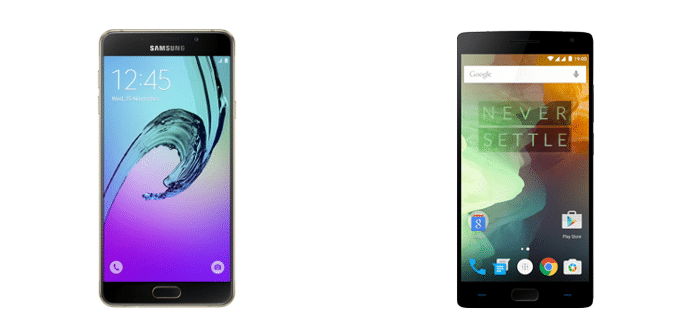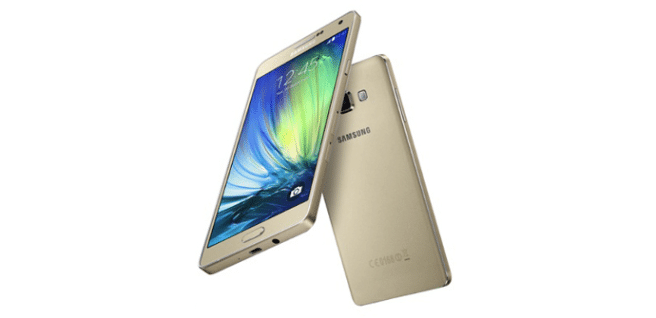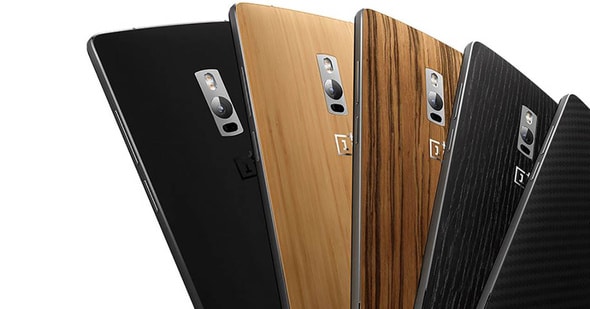
We have already told you about the new Galaxy A7 and yesterday we showed you a comparative in which we faced the other mid-range phablet that Samsung has presented this month, the Galaxy A9, to help you decide which of the two may interest you more, but of course, it is also essential to face the competition you have away from home, and right now, in that field, the most complicated rivals, as you know, all come from China . Let's start with a duel with what is probably one of the most popular Chinese mid-range phablets of the moment (especially now that invitations are no longer necessary): the OnePlus 2. We leave you with the Technical specifications both.
Integrated
When it comes to design, start by recognizing that the Galaxy A7 is superior at least in materials, since while in the OnePlus 2 plastic predominates (although it has a metallic profile), in the phablet of Samsung we find an elegant combination of glass and metal, in the style of those used in its flagship. Both have, in any case, a fingerprint reader.
Dimensions
In phablets, the screen / size ratio is always important, but in this sense, a lot of work has been done with both and, in any case, there is little difference in size between the two (15,15x7,41 inch against 15,18x7,49 inch). The same thing happens with weight, which is quite similar (172 grams against 175 grams), but it does have a clear advantage Galaxy A7 in terms of thickness (7,3 mm against 9,9 mm).

Screen
The differences are even smaller when it comes to the screens, which are not only the same size (5.5 inches), but also the same resolution (1920 x 1080) and therefore the same pixel density (PPI 401). The only distinguishing feature is that while the Galaxy A7 mount a Super AMOLED panel, the one on the OnePlus 2 it's LCD.
Performance
The situation changes when we go to the performance section, in which the balance leans in favor of the OnePlus 2, not because of the RAM, which is 3 GB in both cases (although it should be noted that there is a 4 GB version of the OnePlus phablet), but because it has a superior processor: a Exynos 5430 eight-core with 1,6 GHz maximum frequency versus a Snapdragon 810 eight-core with 1,8 GHz maximum frequency. The two arrive still with Android Lollipop of departure.
Storage capacity
Although the basic models of both arrive with 16 GB of hard disk, which of the two stands out in terms of storage capacity will depend on what we are looking for: if we want the maximum possible internal memory, the OnePlus 2 is available with up to 64 GB (This model is the one that also has 4 GB of RAM memory), but if having a card slot has priority for us micro-SD, only the Galaxy A7 will give us this option.

Cameras
Practically identical technical specifications for the main cameras of both phablets: that of the Galaxy A7 is 13 MP, with aperture of f / 1.9, optical image stabilizer and LED flash, and that of the OnePlus 2 is 13 MP, with aperture of f / 2.0, optical image stabilizer and dual LED flash. The front camera is also 5 MP in both cases.
Autonomy
As we always remember, the really interesting data will be the one that the independent autonomy tests leave us, but as we do not have it for the Galaxy A7 at the moment, we will have to settle for comparing the capacity of their respective batteries, and here we find a absolute tie, since both are from 3300 mAh.
Price
Of course the price is a fundamental factor when it comes to putting the advantages of both devices into perspective, but at the moment we do not have data on what the cost will cost us. Galaxy A7 when it arrives in Europe (its predecessor is now selling for around 350 euros, a figure very close to the 340 euros that the new OnePlus phablet is worth). We will be attentive, however, to inform you when there is news.